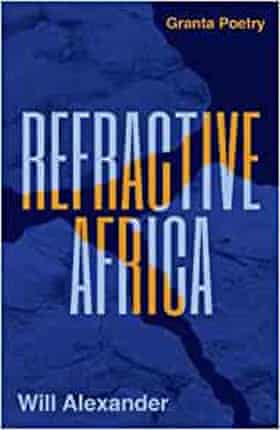
Refractive Africa by Will Alexander (Scholarship, £ 10.99)
This visionary act of “transpersonal witness” to a continent is an Afrodern epic in the tradition of Kamau Brathwaite’s The Arrivants. It is first and foremost an act of recovery, as in the opening section’s dialogue with the Nigerian novelist Amos Tutuola and the final tribute to the Malagasy Jean-Joseph Rabearivelo, often considered Africa’s first modern poet. At the heart of the book is a 50-page poem, El Congo, about that country as a site of colonial pillage, “giddy with disorder.” An enchantment against “Eurocentric brutalization,” Refractive Africa embraces an aesthetic of expansion and overreach, summoning fluid visions of grandeur and desolation. Alexander, an American, is the author of more than 30 books, and their introduction to British readers is overdue.
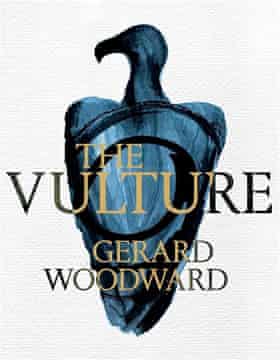
Gerard Woodward’s The Vulture (Picador, £ 10.99)
We begin with the discovery of a dead vulture at the foot of a cliff; as the belly opens, “nothing is revealed there / except the usual indescribable things.” Any expectation of dark secrets exposed in the poems that follow is tempered by an atmosphere of ubiquitous quirk. In describing a piano stool, Woodward writes about its “black wood, as if the piano had given birth,” a comparison that could be the release day of A Martian Sends to Craig Raine’s Postcard Home. He prefers his balanced and metaphysical imagery: “scholars, held / seminars, lectures,” he says of some frogs. More memorable are the building narratives and family stories in the second half of the book, such as Chinoiserie and Paraffin. These poems are at their best when they “hit something solid.”
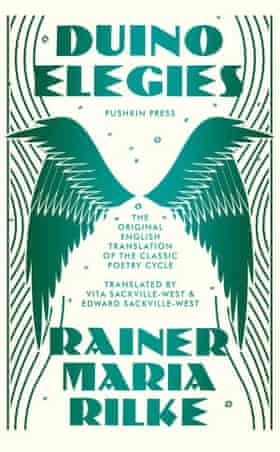
Duino Elegies by Rainer Maria Rilke, translated by Vita and Edward Sackville-West (Pushkin, £ 14.99)
The Sackville-Wests translation of Duino’s Elegies is reissued for the first time in 90 years. Edward Sackville-West was a talented linguist, and his cousin Vita “enlisted the help of her last lover,” as we learn from the introduction (not from Woolf). What sunk his Rilke was his insistence on dividing it into blank verse, softening it so much that it should have been pointed. Sympathy is also a factor: “Every angel is fearsome,” the second elegy begins here, as if we were dealing with a brave old dinner guest rather than some supernatural emanation. This is a fascinating slice of unconscious Georgianism in a world that, even in 1931, had advanced dramatically.
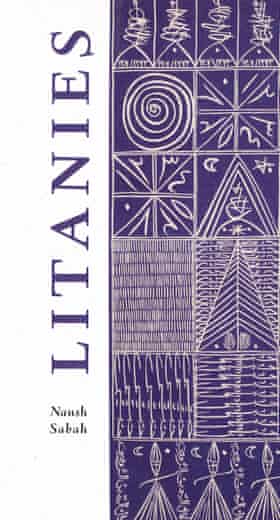
Litanies of Naush Sabah (Guillemot, £ 8)
This is a book of faith and doubt, of roots and rejections. “Kill the messengers, the oracles, the gods, and the fortune-tellers,” Sabah declares, in poems that cast off outdated beliefs while finding the language of belief more difficult to dismiss. Theistic fatalism is a source of anguish: “if he lives / they will praise the mercy of God”, we read in Litany of the littoral, a poem about the illness of a child; but “if she dies / they will praise God for his mercy.” The sensory ecstasies of Questions of Faith provide a daring counterpoint (“love was all I believed in, ask me one more time about my faith”). Sabah has some of Thomas Hardy’s bittersweet dialogue with the divine, his eye for the disappointments and betrayals of love, in what are poems of enormous emotional value. Already well known as a publisher, Sabah’s blossoming as a poet is a sight to behold.
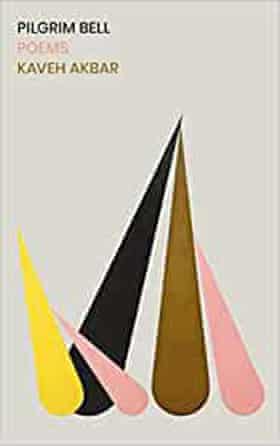
Pilgrim’s Bell of Kaveh Akbar (Chatto and Windus, £ 12.99)
“When I saw God / I trembled like a man, I used the wrong pronouns.” Where Sabah’s poems proceed from the sacred to the secular, Akbar’s passage from a predetermined secularism to the language of the sacred. The caption reads “Any text that is not a sacred text is an apostasy,” a line that suggests Blakean ecstasies but also the force of a more exclusive faith. The way in which Akbar processes this is the vulnerability studied, as in Reza’s Restaurant, Chicago, 1997, or The Value of Fear (“The value // of joy is in your / ask, What should I repair now?? ”). “Art is where what we survive survives”; These are large-scale poems, depicting dramas of cosmic light and dark.
www.theguardian.com
George is Digismak’s reported cum editor with 13 years of experience in Journalism